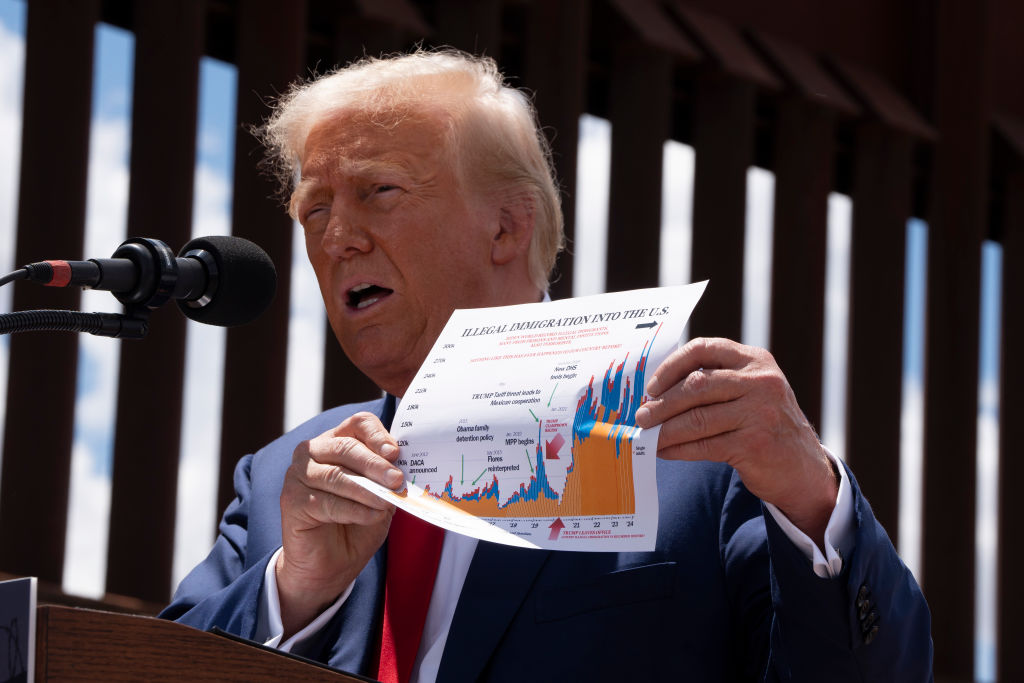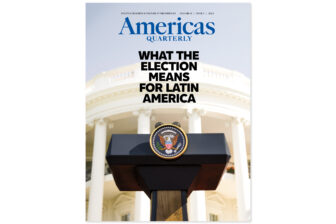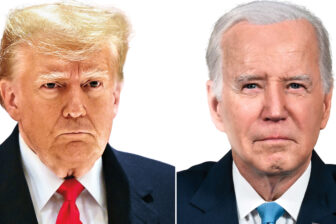BUENOS AIRES—If Donald Trump wins in November, Latin America should be prepared for yet another resurrection of the Monroe Doctrine—with a real-world impact on everything from investment and technology to the region’s ties with China.
The Monroe Doctrine has been declared dead many times over the past 201 years since the fifth U.S. president, James Monroe, declared that the Western Hemisphere should be free of interference from outside powers. The doctrine evolved to become a pretext for U.S. tutelage and repeated military and diplomatic interventions in the region, especially in the 20th century. It is not an idea that generally opens doors in today’s Latin America, where leaders on left, center and right tend to increasingly emphasize national sovereignty and the right to determine their own trading and diplomatic alliances.
Nevertheless, Trump explicitly embraced the concept during his first term. In his September 2018 speech to the United Nations, he declared to the world: “It has been the formal policy of our country since President Monroe that we reject the interference of foreign nations in this (Western) hemisphere and in our own affairs.” His national security advisor, John Bolton, and his secretary of state, Rex Tillerson, paid lip service to the doctrine as well.
What sounded anachronistic to many Latin American ears was actually quite consistent with Trump’s policies and overall worldview. Starting during his campaign, he only mentioned Latin America as part of a “negative agenda”: a destructive source of instability, drug trafficking, migrants, and criminals to the detriment of the United States—and barely relevant in economic terms. Trump also declared that the key threats to the United States did not derive from its low economic competitiveness, growing political polarization, profound social unrest, acute inequality, and worrying institutional erosion, but that the main cause of domestic malaise was China. He responded with uncompromising and coercive actions under the premise of preserving at any cost Washington’s (eroding) global might—including in the Americas.
The Trump of 2024 does not seem to have changed one iota. Indeed, the rest of the Republican Party has increasingly adopted his language and ideas. Two contenders Trump defeated in the party primaries, Florida Governor Ron DeSantis and businessman Vivek Ramaswamy, assertively evoked the value of the doctrine during their campaigns. In October 2023, 11 Republican legislators presented a resolution in the Senate commemorating the promulgation of the doctrine and reaffirming its validity to “oppose a foreign power extending malign influence” in Latin America. Two months later, 19 Republican legislators presented an identical resolution in the House of Representatives. The candidate defeated in the primaries, Nikki Haley, and several Republican legislators from different states proposed sending U.S. military forces to combat organized crime in Mexico. In August 2023, Trump claimed that the Panama Canal is controlled by China: “We built the Panama Canal, we should’ve never have been given it to Panama.”
A recent essay in Foreign Affairs by Hal Brands highlights that even under restrictive conditions, an updated version of “America First” would include a “revitalized Monroe Doctrine.” And more recently, in a note (“A New Monroe Doctrine for the Western Hemisphere?”) this July, a researcher at the conservative Heritage Foundation, James Jay Carafano, proposed the “rejuvenation of the Monroe Doctrine.” All of this would deepen an anti-China policy that began in the second Obama administration with the so-called pivot strategy announced in 2011, was vastly sharpened by the Trump administration, and was evidently reinforced in the Biden administration. A possible Trump II may strengthen it even more.
Indeed, there are several potential ways in which a renewed Monroe Doctrine could take shape from 2025 onward. In addition to defense issues, concern over China’s role in Latin America would spread to include a variety of matters involving technology, investment, trade, drugs, and diplomacy. Trump may well rely on an intimidating policy base of pressures, sanctions, and retaliations to try to persuade governments to turn away from Beijing—even though, if recent history is any guide, Washington is unlikely to offer much of an alternative when it comes to investments or help with infrastructure.
Iran’s footprint in the region is also likely to garner more attention, especially given that country’s longstanding alliances with Venezuela, Cuba and Nicaragua. Given Trump’s previous abandonment of a deal regarding Iran’s nuclear program during his first term, Iran may shift from being seen as an annoyance in the region to something more overtly “malign”—to be dealt with more forceful policy both in the Middle East and in Latin America.
But the biggest shifts could be in Washington’s treatment of Latin American governments themselves. Trump’s last Secretary of Defense, Mark Esper, in his book Sacred Oath, paints a vivid picture of Trump’s obsession with Mexico, Cuba, and Venezuela. For example, he proposed launching missiles into Mexico to obliterate drug infrastructure, imposing a blockade of Cuba, and engaging in military action against Venezuela. A second Trump White House may well lack some of the more rational voices that averted more rash actions the first time around. And with Nicolás Maduro continuing to rely on violence and repression to subdue the political opposition in Venezuela, the temptation to intervene may only grow.
Finally, according to the New York Times, Trump’s immigration plans for 2025 include widespread raids and massive deportations. The people most affected by this prospective brutal policy will be the people from Latin America. A hardline policy against migrants, including military deployment in the Caribbean Basin, should not be discarded, as well as an expanded role of the U.S. Southern Command in the fight against drugs and organized crime in large parts of the region.
The Monroe Doctrine is an old idea. But it hasn’t been consigned to the dustbin of history just yet.
—
Tokatlian is a former provost and current full-time professor at Universidad Torcuato Di Tella in Buenos Aires, Argentina. He has a Ph.D. in international relations from The Johns Hopkins School of Advanced International Studies in Washington, D.C.








